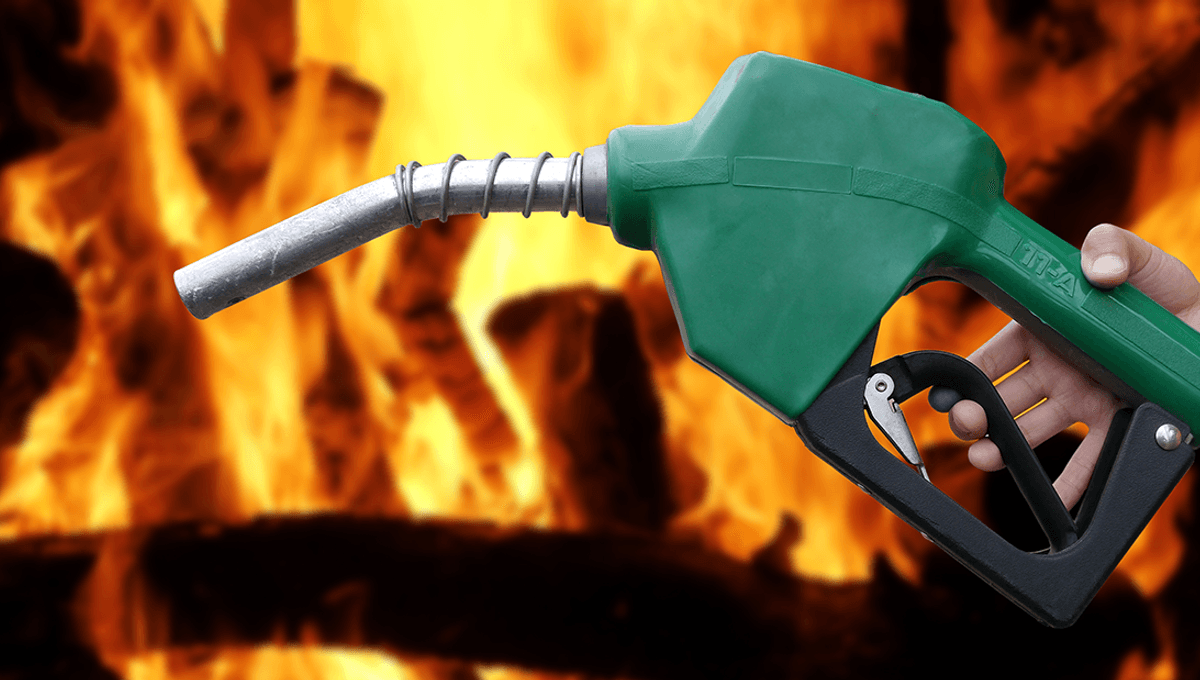
If you’ve ever looked up from your phone while pumping gas at the gas station for long enough, you may have noticed a sign on or near the pump telling you to turn off said cell phone.
So why is that? Is there an actual risk that comes from having your mobile on, or are gas station owners just huge believers in good old-fashioned, distractionless face-to-face conversation? Well, the answer is that in the 1990s and 2000s, there were sketchy reports of people being set alight at gas stations due to cell phone use, and gas stations.
A typical chain email told drivers that a driver (in Indonesia, or sometimes Belgium) “suffered burns and his car was severely damaged when petrol vapor exploded after being ignited by static electricity from the mobile phone he was using”. Sometimes they add that mobile phone manufacturers have issued warnings about the problem.
Though this may sound vaguely plausible, there are no reports of this happening, outside of the emails forwarded to you by your less than skeptical uncle. It is possible for fires to be started by static electricity at gas stations. According to the Federal Communications Commission, between 2004 and 2008, 3 percent of vehicle fires at service stations were caused by an “unclassified static discharge”. According to the Petroleum Equipment Institute, there were 170 static electricity service-station fires between 1992 and 2006.
“As I reached for the pump, I saw a flash of flame,” one unfortunate motorist told the New York Times in 2008. Like most incidents, it occurred after he re-entered his vehicle after he had begun fueling, using a clip to keep the car fueling in the interim. His synthetic jacket became statically charged, and as he reached for the nozzle again, there was the flash.
But as for mobile phones being able to cause such fires, there are no recorded incidents despite the tens of billions of refuelings that take place around the world each year.
“The wireless industry has done studies on the potential for wireless phones to create sparks that could possibly ignite flammable materials. The studies generally conclude that while it may be theoretically possible for a spark from a cell phone battery to ignite gas vapor under very precise conditions, there is no documented incident where the use of a wireless phone was found to cause a fire or explosion at a gas station,” the Federal Communications Commission wrote in a report into gas station fires in 2015.
“Scientific testing,” they added, “has not established a dangerous link between wireless phones and fuel vapors”.
The idea is likely fueled by stickers asking people not to use mobile phones, according to the Cellular Telecommunications Industry Association. Mythbusters even looked into the idea, declaring it a myth.
There are good reasons why you shouldn’t use phones at gas stations, such as stopping you from becoming distracted, but “to stop you going boom boom” is not one of them.
Static electricity is an issue, with real, verifiable fires being caused by it (and, to be fair, the gasoline). However, you can minimize that risk quite easily by grounding yourself as you exit the vehicle, simply by touching the ground with your feet, and the car. And you should not use clips to keep your car fueling, nor re-enter your vehicle during fueling, where you can acquire static charge from rubbing against the upholstery within.
All “explainer” articles are confirmed by fact checkers to be correct at time of publishing. Text, images, and links may be edited, removed, or added to at a later date to keep information current.
Source Link: Why You Are Supposed To Turn Your Phone Off At Gas Stations